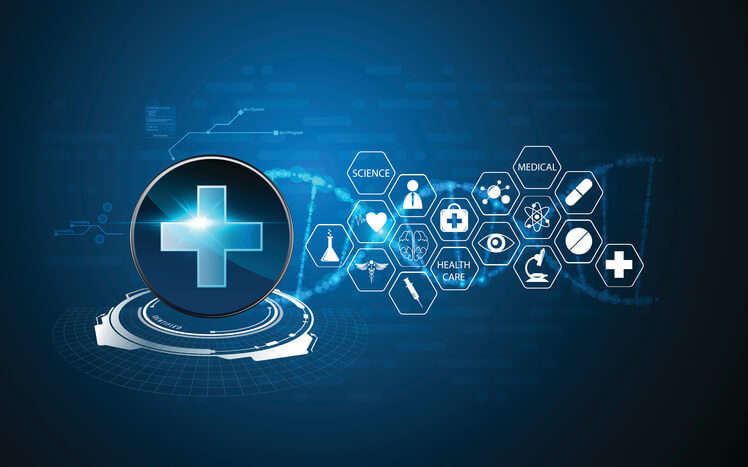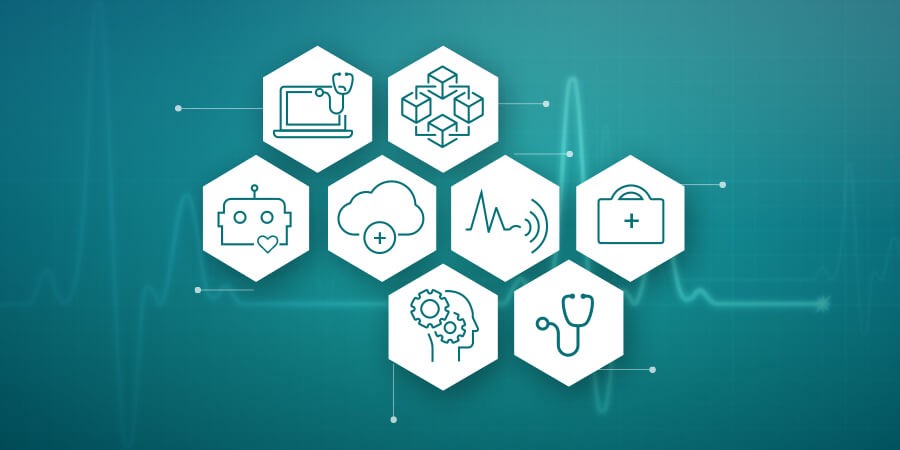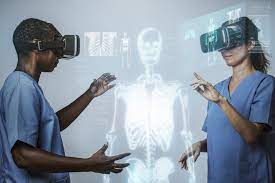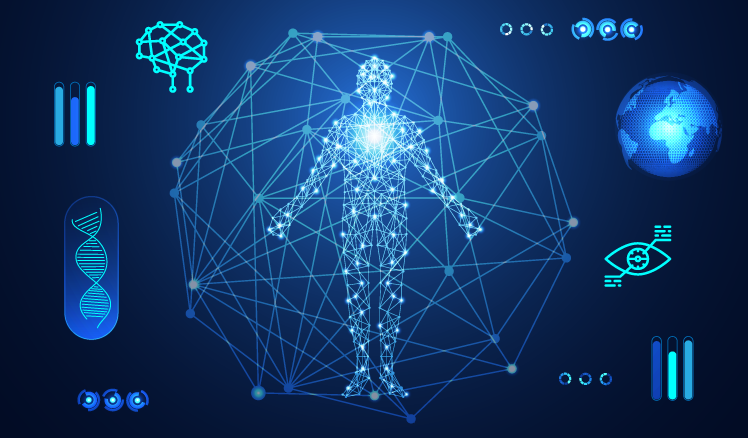Hello!
 Integration of software into the healthcare sector will increase the opportunity to improve healthcare access on a global level. Healthcare technology is changing the way we diagnose, treat, and prevent disease.
Integration of software into the healthcare sector will increase the opportunity to improve healthcare access on a global level. Healthcare technology is changing the way we diagnose, treat, and prevent disease.
Our lifestyles and daily habits change as we grow and adapt. This is true both for individuals and for society. The World Health Organization predicts that by 2050, two-thirds (or more) of the world’s population will live in urban areas.
Health will Always be a Priority
An increasing number of people, especially in urban areas, puts more pressure on healthcare and medical establishments, and clinicians. An increasing number of mental health problems, as well as rising risk factors like smoking and insufficient exercise, have resulted in non-communicable diseases such as cancer, diabetes, and Heart and Lung Disease accounting for 70% of global deaths. Our busy and stressful lives are negatively affecting our mental and physical health.
 It is clear that mental health issues are becoming more prevalent with 15% of the world’s population being affected by substance abuse or mental health. It is vital for our well-being to improve our mental health treatment and prevention.
It is clear that mental health issues are becoming more prevalent with 15% of the world’s population being affected by substance abuse or mental health. It is vital for our well-being to improve our mental health treatment and prevention.
New investment channels are needed to improve the outcomes of patients around the world.
Access to healthcare in less developed regions can be solved by taking advantage of emerging technologies and their roles in healthcare.
Health Tech Investment Saves Lives
 Investing more in primary healthcare will increase access and strengthen the system. The United Nations estimates 60 million lives could have been saved if primary healthcare spending in low- and medium-income countries were increased by just 5%.
Investing more in primary healthcare will increase access and strengthen the system. The United Nations estimates 60 million lives could have been saved if primary healthcare spending in low- and medium-income countries were increased by just 5%.
The world is moving more digitally and these budgets are directed to the technological side of healthcare.
This includes health tech and the financial efficiency and benefits this sector can provide.
To achieve Sustainable Development Goal 3 (“SDG 3”), more resources must be invested in health systems and priorities. Billions of people could be saved as less than half of the world’s population receives the quality healthcare services they require.
It is a Crucial Investment in The Wider Economy
Even in more prosperous countries, people who have untreated illnesses or aren’t supported for disabilities are less able to perform, which can lead to a decrease in productivity. Poor healthcare will, in general, severely impact productivity. This further reduces job prospects and negatively impacts capital development.
 We were hit hard by the COVID-19 pandemic. investors looked to healthcare for relief. We relied on new vaccines for our rescue, which ultimately led to businesses being able to reopen and thrive once again.
We were hit hard by the COVID-19 pandemic. investors looked to healthcare for relief. We relied on new vaccines for our rescue, which ultimately led to businesses being able to reopen and thrive once again.
Universal health coverage would also allow everyone to have access to the high-quality health services they require without having to worry about financial hardship. This would help boost the global economy.
What is Healthcare Tech?
According to the World Health Organization, health tech is “the application of organized knowledge and skills in form of devices and medicines, vaccines and procedures, and systems that are developed to solve health problems and improve the quality of life.”
AI can organize and collect global health data. aid clinicians to develop better patient care according to their individual characteristics. These technologies are revolutionizing healthcare and have the potential to radically improve access to healthcare worldwide.
Integration of technology-enabled products with services is a key factor in the success of the health tech sector. It’s changing the way we diagnose and treat diseases, and even enabling us to predict and prevent them.
Devices at Home
 Investments in health tech have enabled the creation of wearable devices such as smartwatches, which can monitor temperature and track seizures.
Investments in health tech have enabled the creation of wearable devices such as smartwatches, which can monitor temperature and track seizures.
They also detect early-stage viral infections before they become symptoms. IBM Watson Health can alert diabetes sufferers of changes in glucose levels before they happen.
Wearables have the potential to improve your daily life and help you increase productivity. It is possible to monitor your basic health from home, which allows you to take preventative measures. Sickness prevention can reduce work time, which in turn can save billions of dollars.
Facilitating and Enabling Health Functions
Social interaction with AI robotics is possible for elderly patients. This helps them feel less isolated. They can live longer and have a better quality of life. The economic burden of elderly people living in care homes and hospitals is greatly reduced by being able to take better care of themselves and feeling more healthy.
 Companies that specialize in health tech can provide everything from medical and predictive analytics to electronic medical records, training for doctors and vaccine storage and delivery.
Companies that specialize in health tech can provide everything from medical and predictive analytics to electronic medical records, training for doctors and vaccine storage and delivery.
Individual companies may fulfill their own needs, such as digitizing core processes or creating clinical trial management software. However, the entire industry covers everything from pharmaceuticals and medical tech to healthcare providers.
Safe Investment
Healthcare has made significant improvements in our lives and allowed us to live longer and healthier lives. However, we continue to be faced with seasonal recurrences and infectious disease outbreaks that remind us how dependent we are on healthcare.
 This sector has proven resilient in times of market uncertainty. The wide range within the health technology industry means that investments will yield predictable and assured returns. This makes it safer to invest in a single company or product that only meets a specific need. These services will be needed and used by people in 10, 20, 50, and 50 years.
This sector has proven resilient in times of market uncertainty. The wide range within the health technology industry means that investments will yield predictable and assured returns. This makes it safer to invest in a single company or product that only meets a specific need. These services will be needed and used by people in 10, 20, 50, and 50 years.
AI-driven healthcare tech and AI-driven innovations are leading the fight against diseases and illnesses. They provide new opportunities for those who are most vulnerable to receive high-quality healthcare. We will continue to face new diseases as we grow and develop. This sector is safe for many decades.
Being Prepared
The world spends more each year on responding to epidemics and health crises than it does on preventing and preparing for them. The estimated social and economic cost of the SARS epidemic was over $40 billion. In contrast, the West African Ebola epidemic between 2014 and 2016 was estimated to have cost $53 billion. These huge financial losses can be avoided by investing in preparedness, not panicking.
Technology is at the center of the digital age and information age that we live in. Technology is a central part of our lives and will continue to dominate as the world becomes more digital.
Making Diagnostics More Accessible
 Rapid technological advances and the trend to make devices smaller and easier have transformed the way we reach out to and treat patients around the world.
Rapid technological advances and the trend to make devices smaller and easier have transformed the way we reach out to and treat patients around the world.
Virtual health can be used to offer support and care at any location and time. It is able to assist with physical disabilities such as distance and accessibility. Information can be shared with healthcare professionals when used with wearable technology.
70% of healthcare decisions are made by diagnostics, but they only receive 3-5% in healthcare spending. Diabetes detection can be improved for between 50% and 60% of those living in low- or middle-income countries by simply measuring blood glucose.
Humanitarian Investments
 The market for fitness and health wearables has tripled in the US over the last four years.
The market for fitness and health wearables has tripled in the US over the last four years.
Research suggests that it will increase at an annual 10% rate to exceed 120 million users by 2023.
Both the technology and healthcare sectors will continue to exist as humanity moves forward.
Technology companies are constantly looking for innovative ways to improve society. Health tech can also provide financial returns that can be used to help with humanitarian issues.
Also read:
- Tech Leaders Are Popping Pills Like SoundCloud Rappers
- Year for Fusion of Edge, IoT and Network
- The Top Four Advantages of Installing a Commercial Energy Management System
Healthcare Tech is Here to Stay
 Forbes reports that billions were invested in over 100 digital health companies in 2019, with more than 100 of them being listed as top investments.
Forbes reports that billions were invested in over 100 digital health companies in 2019, with more than 100 of them being listed as top investments.
Additionally, governments are investing in digital healthcare. They also save billions of dollars which they can reinvest into front-line care.
The private sector has had a significant impact on low- and medium-income countries. It is now a major player in research, development, and deployment. Private investors have the chance to realize real growth potential with the current pace of innovation in healthcare tech.
New investment channels are necessary to fully capitalize on the potential healthcare technology has. We can improve outcomes for patients around the world by collaborating with innovative models of service delivery and combining them with novel ways to collaborate.
Thank you!
Join us on social media!
See you!






